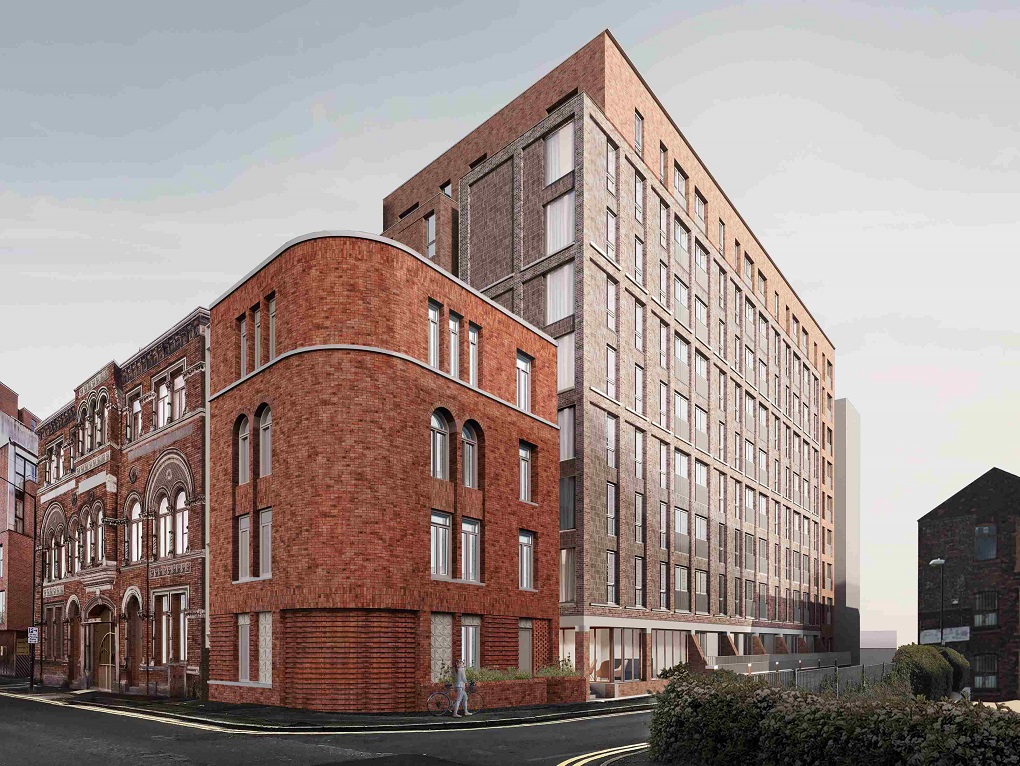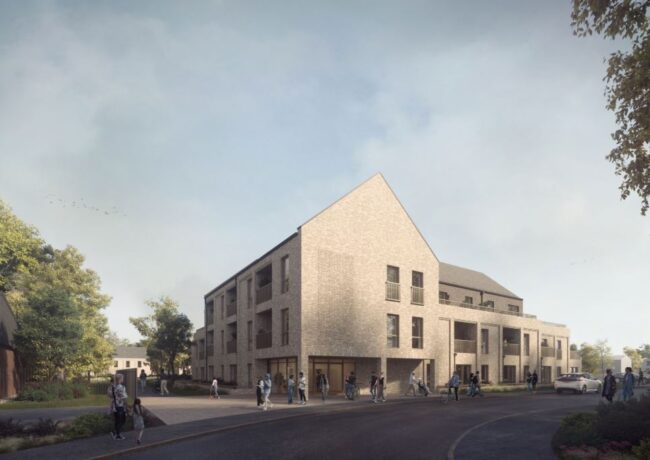The Subplot
The Subplot | Office market lessons from Bristol, Liverpool fantasies
Welcome to The Subplot, your regular slice of commentary on the North West business and property market from Place North West’s analysis editor, David Thame.
THIS WEEK
- Why Bristol matters to Manchester: the first of a two-part benchmarking exercise for the Capital of the North. Next week, Leeds.
- Elevator pitch: your weekly rundown of who and what is going up, and who is heading the other way

WHY BRISTOL MATTERS TO MANCHESTER
Lessons from cider country
Complacent cities (and businesses, and people) always end up taking a tumble. So are there lessons Manchester can learn from successful UK rivals like Bristol? Absolutely yes.
Bristol’s office market is on a roll. You’re shrugging, aren’t you? Or releasing a big Lancastrian harrumph? Yes, it’s true, Bristol’s city centre office market is about half the size of Manchester’s, but Bristol is turning over more floorspace in a smaller market, scoring higher rents and has a larger average deal size – all signs of a market on rocket fuel. So put your shrugs and harrumphs to one side. This is serious.
TL;DR there are two lessons. One, in the era of tech occupiers, don’t bet the house on Grade A corporate offices, like Manchester has, but spread the love into quirky refurbs. Two, getting big comes with a price, and Manchester is now paying it. The city has some work to do.
They’re making money
Facts first. Laid-back Bristol has managed what hyperactive Manchester hasn’t yet, which is a visible surge in rents past £40/sq ft. Bristol office rents rose from £38/sq ft as the year turned (according to Savills) to £42.50/sq ft by the end of Q1 (according to the Bristol Office Agents Society). That’s up 11% in three months, and it is absolutely not a flash in the pan, because Savills calculates the average Grade A rent paid in 2021 was £36.60/sq ft – up 18.9% on pre-pandemic levels set in 2019.
And signing deals
Bristol take-up is outpacing Manchester – and remember, this is an office market of about half the volume, which makes recent stellar performance much more interesting, not less. Take-up in Q1 2022 in Bristol city centre was 234,000 sq ft, a record performance in a good way. In Manchester it was 207,000 sq ft, sharply down from 347,000 sq ft in Q4 2021, below even dire Q1 2020, and the worst Q1 performance since 2016. Bristol’s deal size is larger, too. In Bristol, Q1 saw 30 deals, an average of 7,800 sq ft, way above the city’s five or 10-year average. In Manchester there were 70 deals averaging 3,000 sq ft, miles off the average.
A case of groupthink?
Lesson one for Manchester is that maybe (just maybe) everyone got a bit carried away with speculative office building? Manchester has around 577,000 sq ft of Grade A floorspace ready to occupy, with (excluding pre-lets) 600,000 sq ft under construction. Bristol has 172,000 sq ft, a tiny figure even if it’s up on the tinier figures of 2019 and 2020. A further 568,000 sq ft is under construction, says JLL, because Bristol schemes have been cautious. A prime example is AXA IM Alts which completed 200,000 sq ft at Assembly Bristol, sold it early last year for £135m (4.6% yield) and in October started another 121,000 sq ft. Little steps, nice and safe.
On the other hand
In other words, developers were slower off the mark in Bristol. The usual response is to say that Manchester having a lot of empty Grade A floorspace is actually a good, not a bad, thing because footloose occupiers know they can walk straight in. Which is true to a point.
On the other, other hand
What makes this dubious is that Bristol’s lack of ready-to-occupy Grade A floorspace hasn’t obviously hurt it over the last few years because a lot of the tech and media businesses arriving or growing in the city don’t need Grade A floorspace. Refurbs, many of them to a high standard, did just as well. Bristol’s technology, media, and telecom office take-up was up 271% in 2021, a figure to conjure with.
Funky refurbs
The answer to the conundrum is that Bristol developers devoted far more effort to refurbishment than to new-build over the best part of a decade. This was largely because they had to – it was a safer bet in a city where a single ill-timed spec new-build could flood the market. In Manchester the maths worked the other way round. Plus, Bristol is a short trip, geographically and culturally, from the funkier parts of London.
Too much shiny
“Manchester built big shiny things, but Bristol’s TMT occupiers don’t want big and shiny, they grow fast and would rather move two or three times, if they must, and to be sure they have something cool and quirky,” says Alex Jordan, director at IV Real Estate. Jordan spoke to Subplot fresh from selling his 37,000 sq ft Corn Street refurb for £20.7m (5.75% yield), following a 28,000 sq ft letting to e-commerce intermediary Huboo.
He knows his market
“Huboo could easily have taken a shiny glass box but it wasn’t what they wanted,” says Jordan, explaining why he, and others, refurbished quirky spaces while Bristol’s shiny box developers sat on their hands, most of them frightened to make the first move for fear of accidentally launching too many schemes at once. The result was that developers like CEG and Salmon Harvester sat on prime sites for the best part of a decade while funky refurbs ruled unchallenged.
Also, Manchester has identity issues
Soapworks is another big Bristol tech refurb success. According to Barry Jessup, managing director at Socius which developed the mixed-use scheme, Bristol has an advantage that Manchester has lost. “Bristol’s office market has an ever-clearer geographic centre of gravity, and businesses all want to go there,” Jessup says. “Manchester developers, however, felt more confident dotting development around and so it’s lost that centre of gravity, or now has lots of centres of gravity, and perhaps some of them have less identity. You walk into some and you don’t know where you are, and it looks to me like lettings success seems to reflect location more than building quality.”
The lessons are twofold. First, Manchester put too many eggs in the big glass box office market (because it could) but in Bristol, developers were more cautious (because they couldn’t). That helped push up prime rents while stimulating a good supply of well-refurbished TMT space. Second, Manchester needs to work on giving some of those new office districts a sense of identity, because you can’t just assume they’ll have one.
For now, Bristol is reaping the benefits. Manchester take note.
 ELEVATOR PITCH
ELEVATOR PITCH
Going up, or going down? This week’s movers
Eeeeek! That sudden plunge to the basement goods bay is thanks to Liverpool councillors playing at fantasy planning policy. Meanwhile, water flows uphill to the penthouse.
 Water
Water
Two decisions this week show that environmental concerns can bite – and the teeth marks are visible. Water-based issues provided the spur for both.
Salford City Council turned down plans for a modest trade counter scheme at Broughton Lane on the basis that the flood risk was substantial. Normally the Irwell is a placid thing, and groundwater runoff manageable, so the idea that this plot could be two metres under was a shock (and surely means Salford Greengate is at even greater risk?)
In Cumbria, phosphate run-off from farmland (chickens, fertilisers) is causing huge problems in rivers and inspired a moratorium on plans for 2,500 new homes in Cumbria (and another 100,000 nationwide). The outcry was audible as far south as Preston.
 Liverpool’s future
Liverpool’s future
If you read the below-the-line comments on Place North West you’ll know there’s a strong undercurrent of exasperation about Liverpool City Council’s approach to planning. The burden of the complaint is it is narrow and hostile to development. Surely a bit harsh, you may think? If the refusal of plans for 105 apartments and 63 student flats off Falkner Street are a guide, maybe not.
This Elliot Group but soon-to-be Legacie Developments scheme won consent in 2019, getting as far as section 106 and legal agreements. Then along came Covid and the permission expired, so a better plan – with more two-beds and more generous national space standards applied – was resubmitted. Yet councillors rejected it because there’s too much of this kind of thing around Falkner Street and (a lovely retro view this) young people all have cars so it would screw up the area’s on-street parking. Remember: redevelopment of this site has been pending for 22 years. You can read the officer report here.
Liverpool prides itself on its radicalism but it’s beginning to feel like a deeply conservative strain is getting a lot of its own way. This approach regards students as dangerous and focuses its hopes on comforting delusions about the economic power of football, shops and theme-bars (Debenhams, I’m looking at you). Good political leadership could resolve this, but if leaders only get rewarded for talking up fairy stories then the chances of that are low.
Get in touch with David Thame: david.thame@placenorthwest.co.uk | 01544 262127
The Subplot is brought to you in association with Oppidan Life.






Liverpool is being affected by councillors who seem to have a fundamentalist outlook more akin to regimes on the other side of the world, in that modern expansive thinking is outlawed , and that any way of life other then the parochial one that we cling too is that of an infidel.
Liverpool will not prosper under this kind of leadership and developers will walk away, the council planning officers are trying to do their bit but are being ignored by the zealots that people are voting for.
By Anonymous
Developers are already walking away from Liverpool. They disengage quietly, of course – why burn a bridge? – but disengage they are. Talk to anyone in the local supply chain and they’ll confirm this. Meanwhile senior officers continue to entertain the fantasy that there’s a queue of institutional investors just waiting to pump billions into the city without providing any evidence to support this whatsoever. Throw the increasingly ideological approach to planning and the city is going backwards at a rate of knots. The almost complete absence of tower cranes confirms as much.
By Anonymous
Developers need to look what’s happening post pandemic.There is going to be less and less demand for office space Home working is clearly the future and not expensive,polluting long commute that is not conducive to family life.Bad news for office developers but a opportunity to rethink the future of our cities to other uses and development.
By Bob Evans
Mcr…capital of the north
In your head only.
By Geo
Capital of everywhere outside London in reality, but I guess they have to say the North.
By Anonymous
Manchester has too Many office developments and just needs to rebrand some of them. But the Manchester market is on a different scale to be relevant here. The real takeaway should be Bristols performance compared to Liverpools in the same period. Both developing former seafaring cities. One developing rather more than the other.
By Anonymous
Capital of the North? Is this a new title or designation, this is not official only self promoted by Manchester, no wonder you have such apathy from the Sunny end of the 62, you do not help the cause of fraternity in the NW by perpetuating this delusional tripe.
By Not in my name
I Can understand why Capital of the North might grate even if reality says it is so. How about Northern Powerhouse?….has that been used before?
By Anonymous
Reckon Glasgow can give Mcr a good run for it`s money, great commercial buildings, fantastic residential streets, European feel, media presence, not so much high-rise, but hey ho.
By Anonymous
York is the capital of the North. Manchester is the economic epicentre of it.
By Elephant